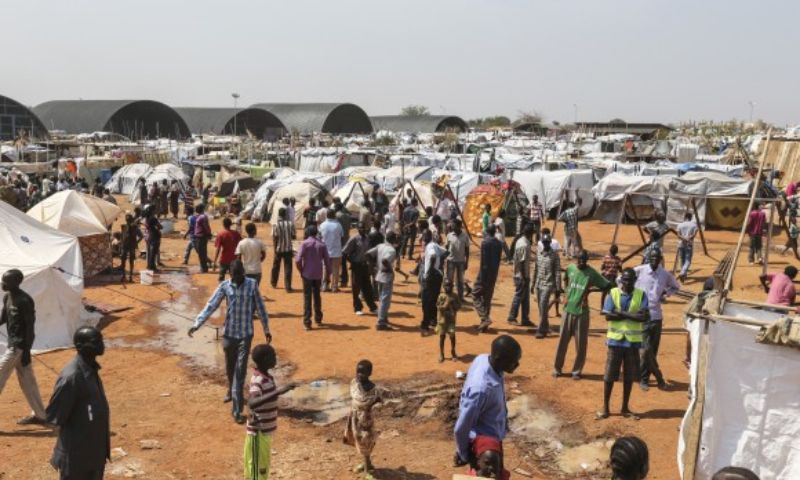KHARTOUM: The capital city of Sudan, Khartoum, experienced a temporary communications blackout on Friday as clashes between the army and paramilitary forces escalated throughout the city. Witnesses reported violent battles and an outage of vital internet and mobile phone connections, causing disruption and uncertainty among residents. The source of the malfunction remains unclear, but services were restored later in the day.
Columns of black smoke rose near army headquarters in central Khartoum and the city’s south, while witnesses in Khartoum North reported clashes with various weapons. Fighter jets and drones were also observed in Omdurman, across the Nile river. The conflict between the forces led by army chief Abdel Fattah Al-Burhan and the paramilitary Rapid Support Forces, commanded by his former deputy, Mohamed Hamdan Daglo, has claimed the lives of at least 3,000 people across Sudan, with the worst fighting occurring in Khartoum and the western Darfur region.
The United Nations estimates that more than 1.7 million residents of Khartoum have been displaced due to continuous airstrikes, tanks, street fighting, and widespread looting. The internet has played a crucial role for those who have fled and those who remain, as they rely on it to source basic needs and organize escape routes, food, and medicine.
Armed Conflict Strains Sudan’s Healthcare System
The ongoing crisis has severely strained Sudan’s healthcare system, with between two-thirds and 80 percent of hospitals not functioning and supplies running low, particularly in safe areas. Rick Brennan, of the World Health Organization, expressed concern over the challenges faced by the already overstretched healthcare system, stating that Sudan is now in a life-or-death situation.
In Kosti, a city along the road from Khartoum to South Sudan, heavy rains have caused floods, leaving families in need of assistance, including 260,000 who fled from Khartoum, according to the Norwegian Refugee Council. Aid groups have urged the establishment of humanitarian corridors to deliver aid and personnel, as the ongoing rainy season increases the risk of water-borne diseases in remote areas.
Meanwhile, neighboring countries have expressed concerns about the conflict’s regional spillover. In South Sudan, the closure of the northern border has led to empty markets and exacerbated an already fragile humanitarian situation. Egypt’s President Abdel Fattah El-Sisi called on international donors to honor their commitments, referring to the $1.5 billion in aid pledged at a Geneva conference in June, which falls short of the estimated needs for Sudan and affected neighboring countries.
Efforts to mediate an end to the violence have been unsuccessful so far, with multiple cease-fires being violated. The International Criminal Court has recently initiated investigations into alleged war crimes, including reports of atrocities and ethnic targeting in Darfur.























